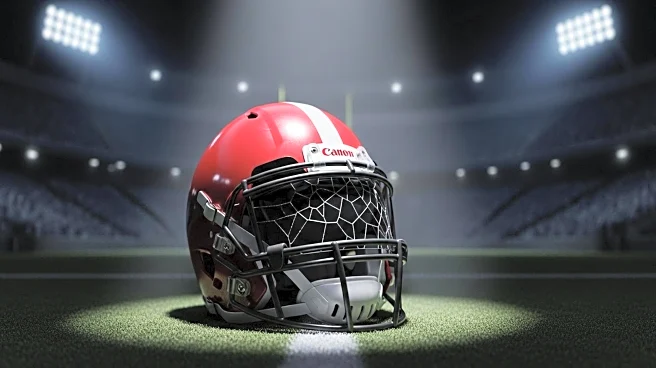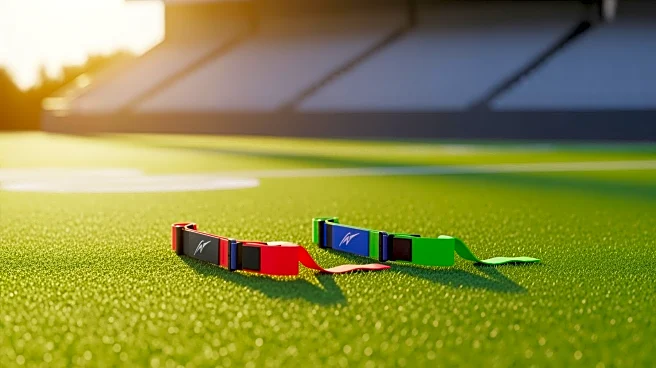What is the story about?
What's Happening?
Mark Sanchez, a former NFL quarterback, was arrested in Indianapolis after being involved in a stabbing incident early Saturday morning. Police reports indicate that Sanchez was hospitalized due to injuries sustained during the incident before being taken into custody on multiple charges. The circumstances leading to the stabbing and Sanchez's arrest are still under investigation. Sanchez, known for his time with the New York Jets, has been a notable figure in the sports community, and this incident has attracted considerable media attention.
Why It's Important?
The arrest of Mark Sanchez underscores the challenges faced by former professional athletes in managing their personal lives post-retirement. This incident may lead to discussions about the adequacy of support systems for athletes transitioning out of professional sports, particularly in handling legal and personal issues. Sanchez's arrest could affect his public image and future career prospects, especially in sports commentary and media roles. The situation may also prompt broader conversations about the responsibilities of sports organizations in supporting their athletes beyond their playing careers.
What's Next?
Further developments are expected as the investigation into the incident continues. Legal proceedings will likely follow, with Sanchez facing potential charges related to the stabbing. The sports community and media will be watching closely, given Sanchez's high profile. There may be increased advocacy for better support systems for former athletes, focusing on mental health and legal assistance. Sanchez's case could serve as a catalyst for change in how retired athletes are supported in their personal and professional transitions.
Beyond the Headlines
This incident may highlight the need for comprehensive mental health and support services for former athletes, addressing the unique challenges they face in transitioning to life after sports. Sanchez's situation could lead to increased awareness and action from sports organizations and advocacy groups, emphasizing the importance of proactive measures to support athlete well-being. The case may also prompt discussions about the societal expectations placed on athletes and the pressures they face in maintaining their public personas.

















